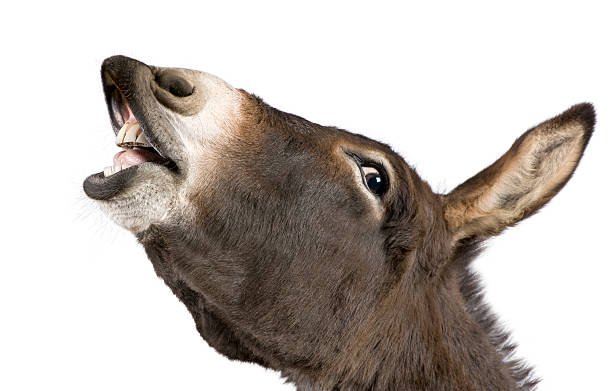Introduction
Donkey teeth are an interesting part of the anatomy of the donkey. Donkeys have a unique set of teeth that differ from other animals. Unlike humans, donkeys have four incisors in the front of the mouth, two in the upper jaw, and two in the lower jaw. They also have twelve molars, six on the top and six on the bottom. Donkey teeth are important for eating and grinding food, as well as for defense against predators.
Donkeys have a unique way of growing their teeth. Unlike humans, donkeys have teeth that continue to grow throughout their life. This is why donkeys must have their teeth trimmed and filed down regularly to keep them from overgrowing. Donkeys also have long roots on their teeth, which helps them to hold onto the food they are chewing.
Donkeys are often overlooked when talking about animals, but they are incredibly interesting creatures. One of the most interesting aspects of a donkey is its teeth. Donkeys have long, curved teeth that are unusual compared to other animals.
Donkeys have two sets of teeth – their incisors and their molars. The incisors are located on the front of the mouth and are used for cutting and grinding food. The molars are located in the back of the mouth and are used for grinding and crushing food. Donkeys have long, curved incisors and molars that are adapted to their diet of tough, fibrous plants and grasses.
Donkeys’ teeth are also adapted to their environment. In the wild, donkeys must forage for food, digging for roots and pulling out tough plants with their teeth. They also have to defend themselves from predators, so their teeth are sharp and strong.
Donkeys’ teeth have one other unique feature – they continue to grow throughout their lives. This is because donkeys constantly chew on tough plants and grasses, which wear down their teeth. If a donkey’s teeth are not worn down regularly, they can grow too long and interfere with its eating ability. To prevent this, a veterinarian should check donkeys’ teeth regularly and trimmed.
FAQs
Q1. What are donkey teeth?
A1. Donkey teeth are the long, curved incisors of the donkey, which are used for grazing on pastures and foraging for food.
Q2. Do all donkeys have the same number of teeth?
A2. No, the number of teeth can vary from one donkey to another. Generally, a donkey has between 20 and 24 teeth.
Q3. How often should donkey teeth be checked?
A3. Donkey teeth should be checked annually by a veterinarian.
Q4. What are the signs of dental problems in donkeys?
A4. Signs of dental problems in donkeys include excessive drooling, difficulty eating, and weight loss.
Q5. How can I prevent dental problems in my donkey?
A5. To help prevent dental problems in your donkey, ensure they have access to a balanced diet and plenty of hay. Regular dental exams and teeth floating can help maintain good dental health.
Donkeys are fascinating creatures, and their teeth are one of their most interesting features. They adapt to their diet and environment and continue to grow throughout their lives. Donkeys’ teeth are important to their overall health and should be regularly checked and trimmed.
Conclusion
Donkey teeth are an important part of the donkey’s anatomy. They are used for eating and grinding food, as well as for defense against predators. Donkeys’ teeth are unique in that they continue to grow throughout life and must be regularly trimmed and filed down to keep them from overgrowing.
Donkey teeth are essential for the health and well-being of the animal, and it is important to keep them in good condition.

